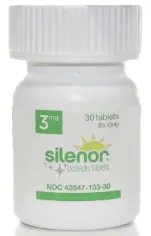A Hawthorne pharmaceutical company that has applied for federal approval to produce a generic insomnia drug has been sued for patent infringement.
Currax Pharmaceuticals accused Taro Pharmaceuticals U.S.A. Inc. of ten counts of patent infringement, in a complaint filed on July 2 in U.S. District Court, White Plains.

Currax, based in Brentwood, Tennessee, received U.S. Food and Drug Administration approval in 2010 to make and sell Silenor (doxepin hydrochloride) tablets that help people sleep.
Doxepin has been marketed for decades for treatment of depression and anxiety, according to a 2012 U.S. Securities and Exchange Commission report. In significantly lower dosages it has been found effective in blocking a histamine receptor in the brain that plays an important role in sleep regulation.
Taro Pharmaceuticals USA’s parent company, Taro Pharmaceutical Industries Ltd., is based in Israel and produces off-patent drugs for the U.S., Canada and Israel markets.
On May 22, Taro merged with Sun Pharma, of Mumbai, India, became a privately held company, and was delisted on the New York Stock Exchange.
On May 21, according to the complaint, Taro had notified Currax that it had submitted an application to the FDA to make and sell generic versions of Silenor’s 3 mg and 6 mg tablets.
Taro has to demonstrate that its tablets are bioequivalent to the Currax brand drugs. It does not have to run the kind of drug trials that brand-name drug makers undertake to establish safety and effectiveness, but it has to demonstrate that the generic version performs the same way as the branded drug.
Currax claims Taro is seeking FDA approval to make and sell generic Silenor before ten patents expire, and therefore Taro knows it is infringing on the patents.
The complaint does not say when the Silenor patents will expire. According to DrugPatentWatch, the patents will expire in 2027 and 2028.
Currax is asking the court to declare that Taro has infringed and will infringe on the patents, and to restrain Taro from making or selling the drugs in the U.S. before the patents expire.
Taro and Sun Pharma media relations officials did not reply to an email asking for their side of the story.






















